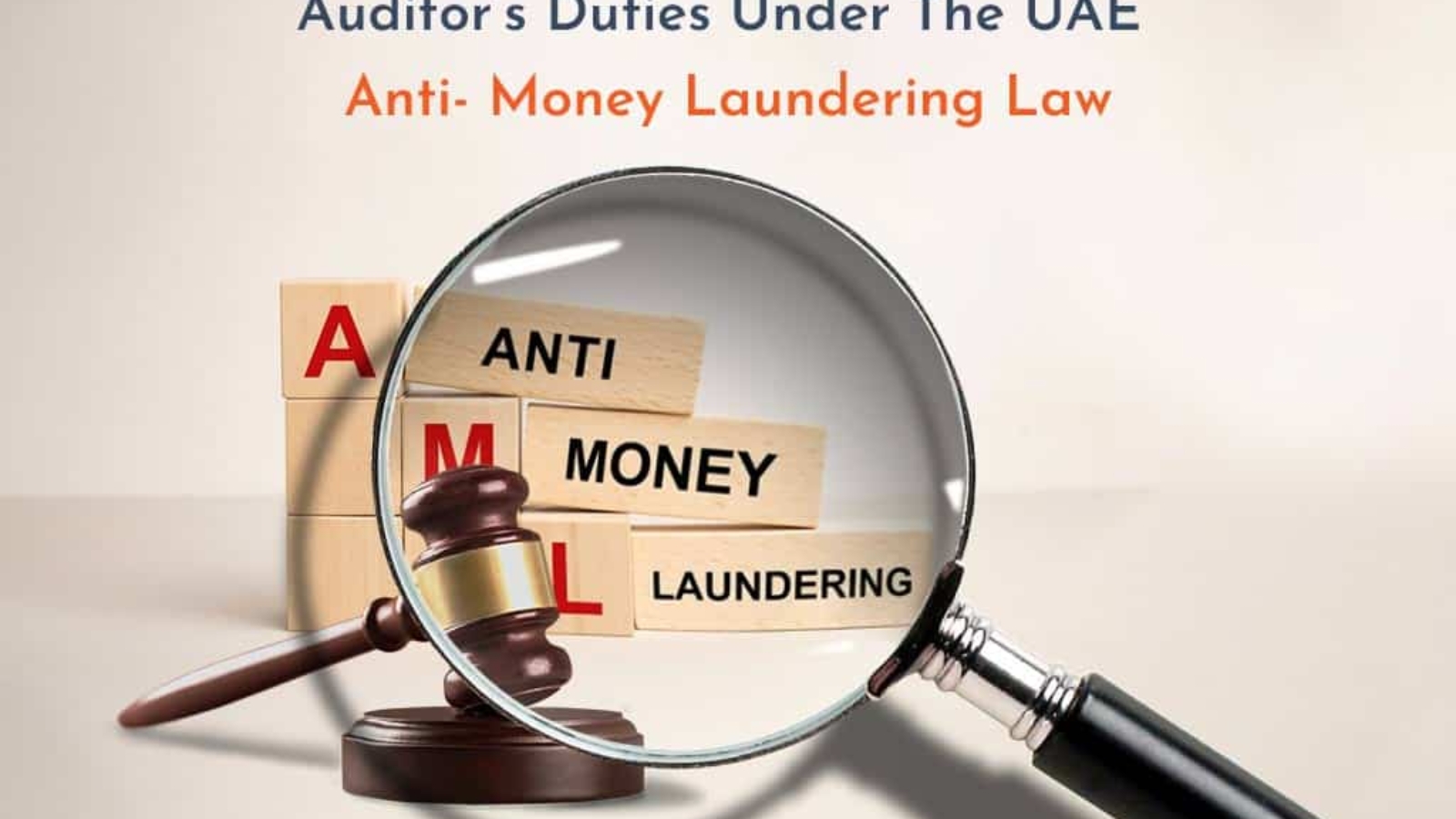The UAE Government has laws and regulations that guide the conduct of all persons, whether natural or legal entities, in order to combat money laundering and terrorism financing in the country. The Audit Profession/Business, being one of the enterprises listed as Designated Non-Financial Business Professions (DNFBPs) under the UAE Anti-Money Laundering Law, plays a variety of responsibilities in combating money laundering and terrorism financing.
Audit experts are in a unique position to uncover potential money laundering risk and discover potentially suspicious behaviours because of the nature of their work, which entails checking their customers’ accounts, books, records, paperwork, rules, and processes. Audit professionals must consequently be aware of their responsibilities under the UAE Anti-Money Laundering Law.
We’ll focus on audit professionals’ responsibilities under the UAE Anti-Money Laundering Law in this article.
Auditor’s Responsibilities
Audit professionals take on a range of responsibilities or duties as part of their work, including the following:
Financial audits of the client’s books, records, and annual and periodic financial statements;
Operational audits of the client’s internal controls, governance structures, and risk management processes and procedures
Clients’ compliance with legal and regulatory obligations is audited.
The Anti-Money Laundering Law in the UAE outlines the responsibilities of auditors.
As DNFBPs, audit professionals must meet specific requirements that form the foundation of an effective risk-based anti-money laundering programme. Among these are the following:
Detecting, analysing, and reducing ML/FT threats;
Keeping proper risk-based customer due diligence (CDD) and monitoring mechanisms in place
Suspicious transactions are detected and reported.
Appointing a Compliance Officer and ensuring adequate screening and training for all employees.
The UAE’s Anti-Money Laundering Law requires auditors to identify and assess risks.
The UAE Anti-Money Laundering Law requires auditors to identify and assess the money laundering and terrorism financing risks they face.
When identifying and assessing money laundering concerns, they are obligated to take certain variables into mind.
Auditing is a unique business, and auditors charged with enforcing the UAE Anti-Money Laundering Laws must approach risk assessment from two perspectives:
They are responsible for identifying and assessing their own money laundering risk in relation to the nature and kind of their customers; they are also responsible for identifying and assessing their client’s money laundering risk when hired by the client.
Audit professionals may collect money from their clients and provide valuations on a company’s assets and liabilities while performing certain tasks. They may also approve changes to a company’s capital structure or dividend payouts, as well as the write-off of uncollected debts, among other things. These and other responsibilities might expose Audit Professionals to money laundering risk; as a result, when performing risk identification and assessment, they must evaluate elements including customer risk, regional risk, product and service hazards, and delivery channel risk.
Factors that auditors should examine when assessing risk under the UAE AML.
Under the UAE AML, audit professionals must take into account things like
Size, intricacy, and transparency of the client
Country of origin of people affiliated with the client, including beneficial owners, to see if they’re from a High-Risk Country.
The client’s industry/sector allows them to determine if it is linked to a higher risk of money laundering.
Introduces and connects with the client through this channel
Financial arrangements connected with the client’s kind, size, complexity, transparency, and geographic origins
Any exceptional character of the client’s financial arrangements, structures, or situations, especially when compared to conventional practise in the local market
When performing audit functions on a client’s internal controls on anti-money laundering problems, audit professionals must take the risk factors into account. They must be aware of the client’s internal policies, procedures, rules, and governance structures in order to minimise anti-money laundering risks. They must develop an effective risk-based strategy that includes suitable internal resources such as the Anti-Money Laundering Compliance Officer, senior management, and a procedure for reviewing and updating the risk assessment on a regular basis.
Depending on the type and scale of their companies, audit experts may employ a variety of methodologies to assess money laundering risk. Whatever measures they employ to assess their own or a client’s risks should be commensurate to the company’s size and type. They must also document the method as well as the reasoning for using it. It should be used consistently throughout all connected business activities by audit professionals.
Related Info
Importance Of Using Different Accounting Methods In The United Arab Emirates
Top 20 Accounting Services In Dubai 2024: A Comprehensive Guide For Businesses


Add a Comment